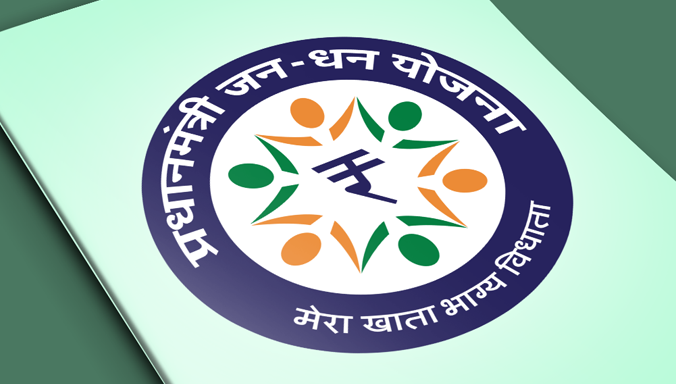Pradhan Mantri Jan Dhan Yojana Milestones
Current Affairs NationalPosted by newadmin on 2025-04-02 08:45:58 |
Share: Facebook | Twitter | Whatsapp | Linkedin Visits: 62

The Pradhan Mantri Jan Dhan Yojana (PMJDY) remains a cornerstone of India's financial inclusion strategy in the financial year 2024-25. The scheme has recently achieved significant milestones, with 55 crore beneficiaries and a total balance of ₹2.5 lakh crore in accounts. Launched on August 15, 2014, PMJDY aims to provide accessible banking services to India's unbanked population.
As a financial inclusion initiative, PMJDY promotes the opening of zero-balance savings accounts, encouraging savings among underserved communities. These accounts also offer access to essential financial services such as insurance and credit, helping integrate a larger population into the formal banking system.
By March 2025, the scheme had recorded 55.14 crore beneficiaries, with 67 per cent of the account holders belonging to rural and semi-urban areas. Women account for a significant share, with 30.71 crore female account holders, making up 56 per cent of the total. This highlights the scheme's impact on women's financial empowerment and independence.
With an average balance of ₹4,726 in these accounts, PMJDY has facilitated direct benefit transfers, improving financial literacy and encouraging savings habits. The increased banking participation has also contributed to the overall liquidity of financial institutions, strengthening the economic ecosystem.
The scheme supports digital financial integration through the issuance of RuPay debit cards. By March 2025, 37.77 crore RuPay cards had been distributed, boosting digital payments and fostering a shift towards a cashless economy. This digital expansion has played a crucial role in advancing India’s financial infrastructure.
PMJDY has significantly contributed to India's financial inclusion index, which rose from 43.4 in 2017 to 64.2 in 2024. It has expanded access to essential financial products such as micro-insurance and pension schemes, promoting investment in key sectors like education and healthcare.
Despite its success, challenges persist, including 11.3 crore dormant accounts that require reactivation. There is a growing need for innovative credit products and a formal credit scoring system to further improve the financial standing of beneficiaries. Increased participation from private banks will also be essential to sustain the initiative’s momentum.
One of the most notable impacts of PMJDY is its role in empowering women financially. With a significant percentage of female account holders, the scheme has contributed to greater financial independence and inclusion, reinforcing its importance in shaping India's economic future.
Search
Categories
Recent News
- Hyderabad Police Swiftly Recover APK Fraud Losses
- India's T20 World Cup Squad: Samson's Omission, Ishan's Rise
- Uniting Faiths: Deepak's Story of Solidarity and Identity
- Global Alliance Forges Ahead: US-Led Critical Minerals Strategy
- Italy's Digital Defense: Uncovering Russia's Olympic Cyber Plot
- Premier League Chaos: FA Charges After Fiery London Derby
- A Son's Burden: Healthcare Woes in Madhya Pradesh
- Hyderabad Tragedy: Tech Industry Stress Claims Another Life
Popular News
- Navigating IPO Market Dynamics Amid Volatility and Regulatory Changes
- Massive Worldwide Microsoft Outage Disrupts Multiple Sectors
- Panjapur Bus Stand to Reshape TNSTC Routes
- తెలుగుదేశం పార్టీ - పేదరికాన్ని నిర్మూలించడంలో వాగ్దానం
- Universities Embrace Remote Learning Technologies Amidst Ongoing Pandemic